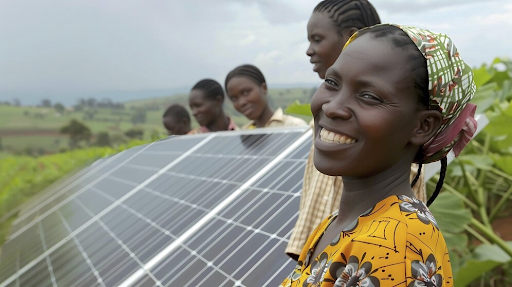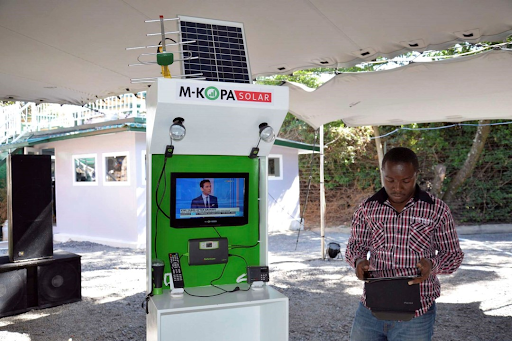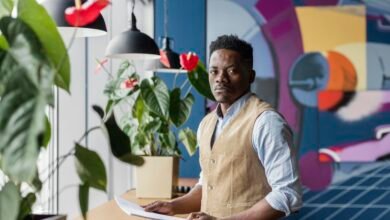African entrepreneurs are sowing the seeds of a green economy in Africa
As COP29 takes place in Baku, Azerbaijan, Africa is establishing itself as a key player in climate discussions. Behind the international negotiations, a generation of African entrepreneurs is already shaping the contours of a green economy, where ecology and sustainable growth come together to address the continent's challenges.

For the past few days, all eyes have been on Baku, where COP29 is being held. This edition is marked by high expectations, particularly for Africa, which is home to some of the richest and most vulnerable ecosystems on the planet. Despite contributing marginally to global greenhouse gas emissions (less than 4%), the continent is experiencing the full impact of climate change: droughts, floods, food insecurity.
In this context, the green economy represents a strategic response to combine environmental protection and economic development.
Up to 60 million jobs by 2030
The green economy in Africa is still in its early stages but is growing rapidly. According to the United Nations Environment Programme (UNEP), sectors related to the green economy could generate up to 60 million jobs by 2030. Sustainable agriculture, renewable energy, waste management, and ecotourism are among the pillars of this transition.
The benefits are twofold: preserving the natural resources essential for the continent’s development and exploiting a huge economic potential. Solar energy, for example, represents a major opportunity for a continent bathed in sunlight, where access to electricity remains a significant challenge.
However, the green economy is not limited to infrastructure or public policies. It increasingly relies on private initiative and innovation, embodied by a new generation of engaged entrepreneurs.
A generation of entrepreneurs for sustainable growth

African entrepreneurs are at the heart of the green economy’s emergence. These innovators are designing business models where ecology is not just a secondary element but the foundation of their activity.
This is the case with startups like M-KOPA in Kenya, which provides low-cost solar kits to electrify rural areas, or Jeunes Agriculteurs Bio in Senegal, which promotes agroecology to reduce dependency on chemical fertilizers. These initiatives demonstrate how businesses can simultaneously address social and environmental needs while generating profits.
In Côte d’Ivoire, the startup Coliba has transformed plastic waste management into a digital recycling system, creating hundreds of green jobs. In South Africa, companies like GreenCape are collaborating with the government to develop resilient infrastructures that are attractive to investors.
These initiatives have a multiplier effect. By creating green jobs, they contribute to inclusive growth and offer opportunities for younger generations. They also lay the groundwork for a resilient economy, less dependent on extractive industries and more focused on a sustainable future.
$3 Trillion in investments to achieve climate goals by 2030

Despite these advances, the green economy in Africa faces major challenges. Financing remains one of the main obstacles. According to the African Development Bank, it would take about $3 trillion in investments to achieve the climate goals by 2030.
Inadequate infrastructure and weak digital connectivity also slow the adoption of green technologies. Furthermore, the regulatory framework is sometimes unclear or inadequate, discouraging potential investors.
Finally, it is crucial to ensure that the green transition is inclusive. A green economy that excludes rural populations or marginalized communities could exacerbate social inequalities.
COP29 could thus become a major lever to mobilize funding and promote innovative local solutions. « Southern countries, representing 65% of the world’s population, receive less than 15% of global investments in clean energy, » reminded the Egyptian Minister of Planning, Economic Development, and International Cooperation, emphasizing the need for an annual investment of $1 trillion by 2050 for low-emission and climate-resilient development.






